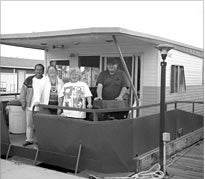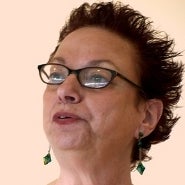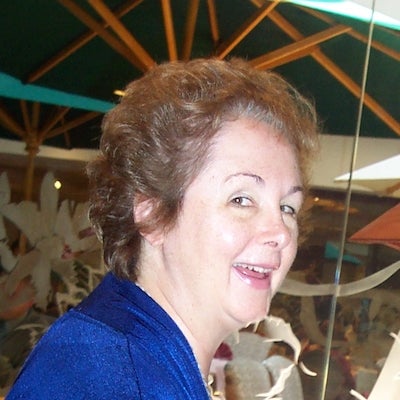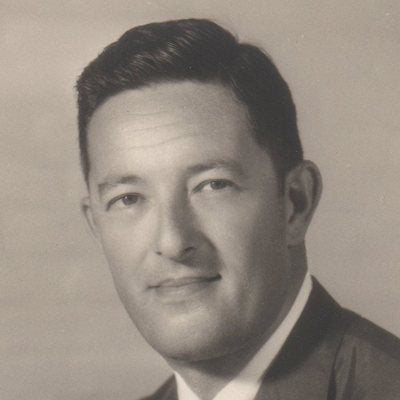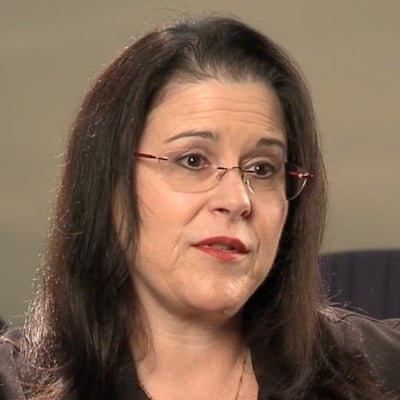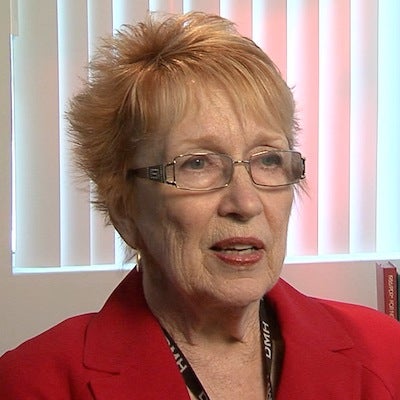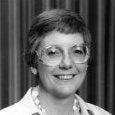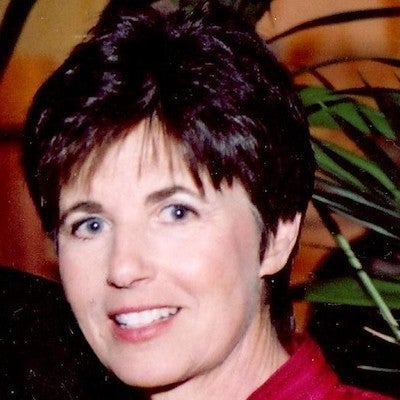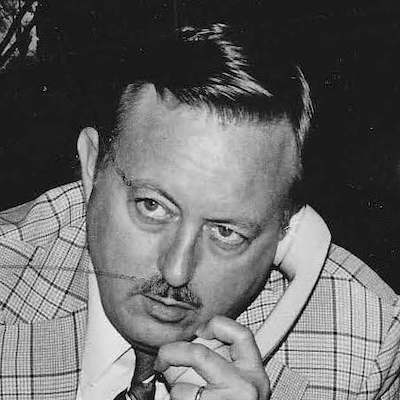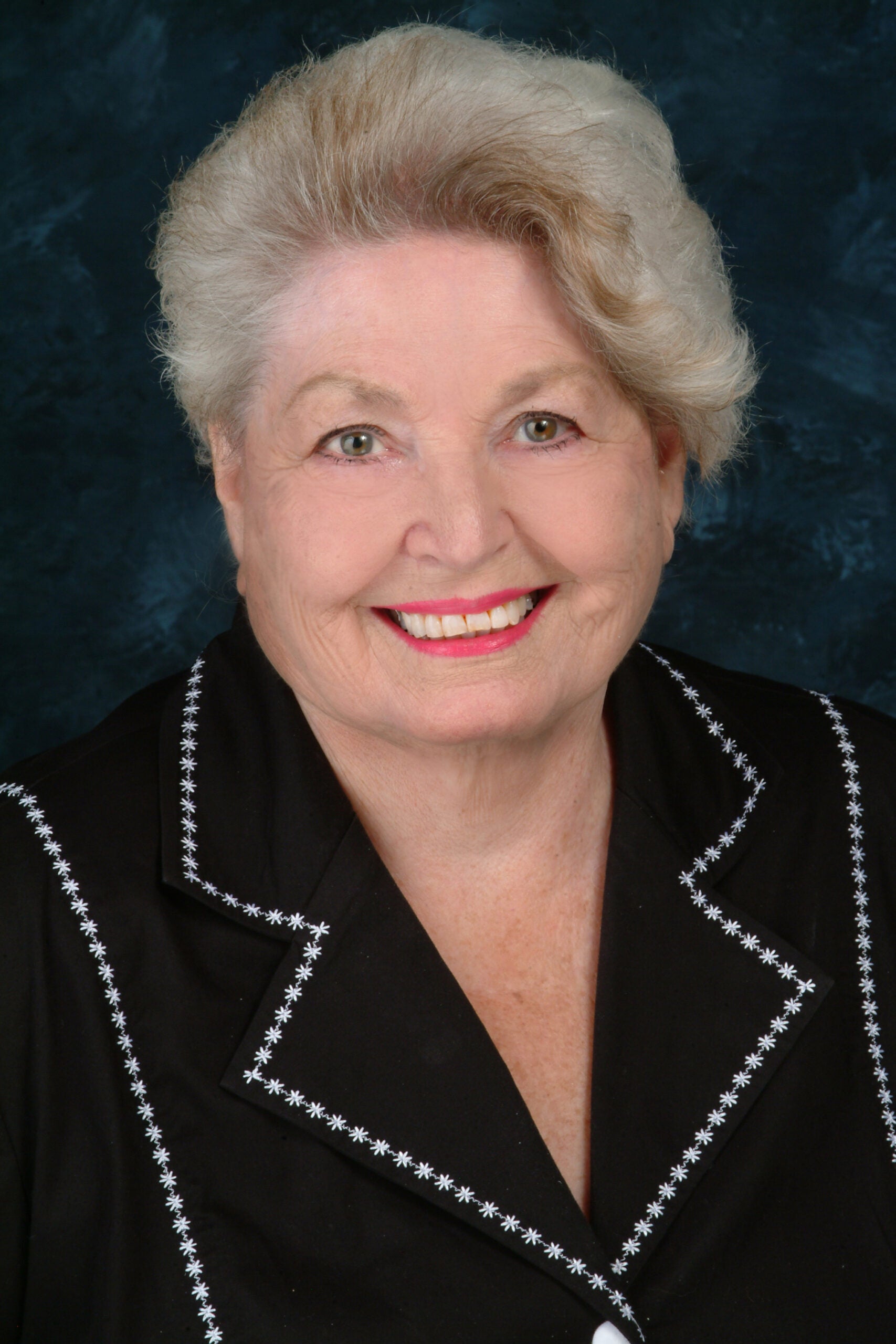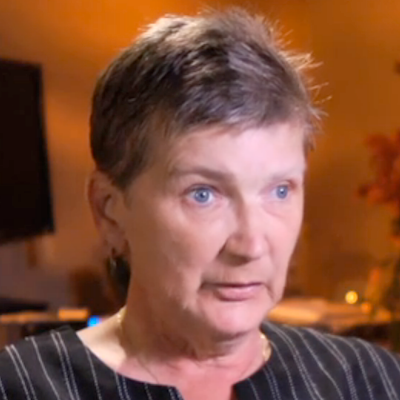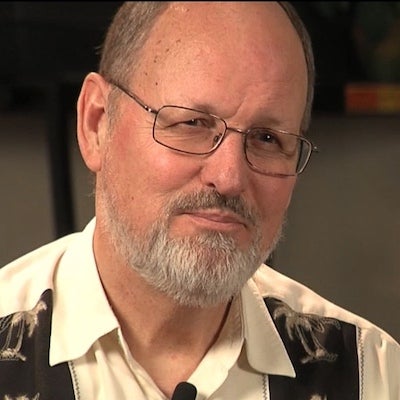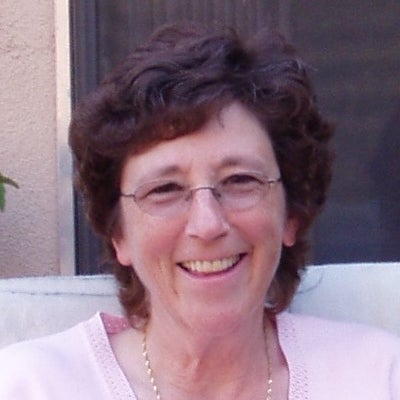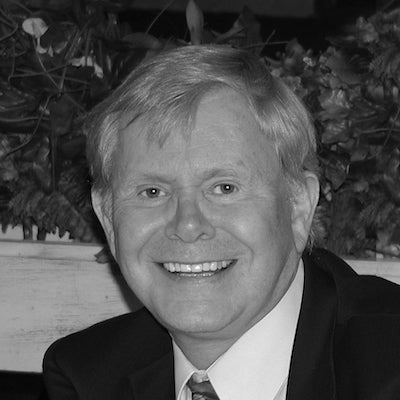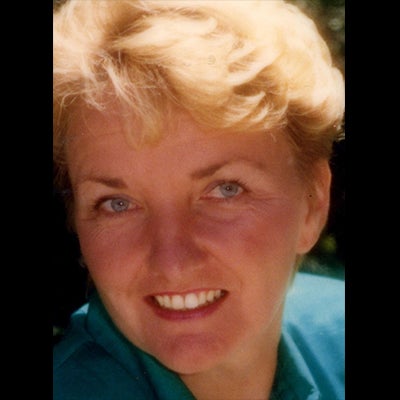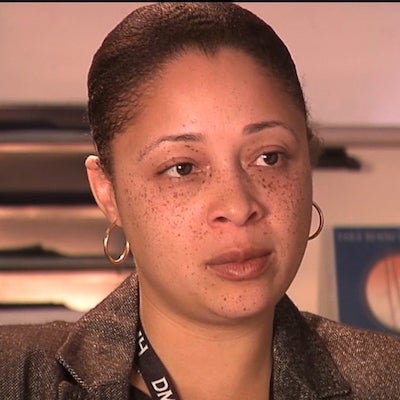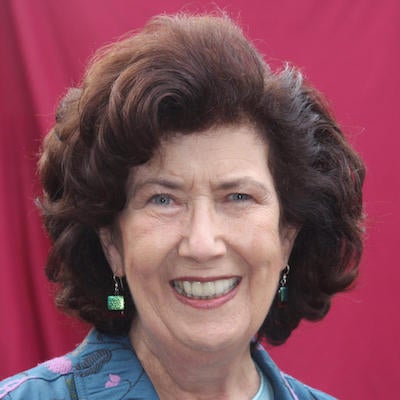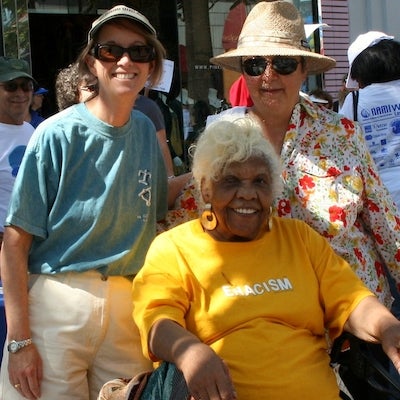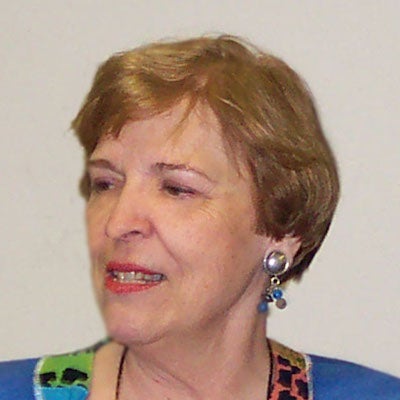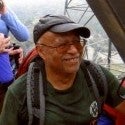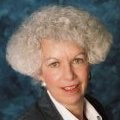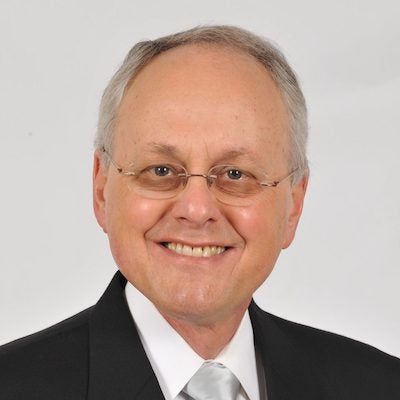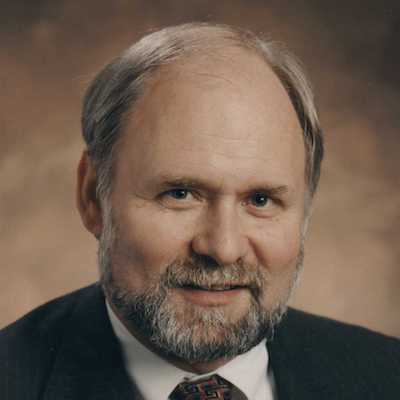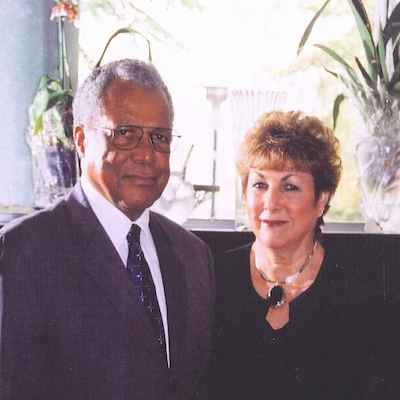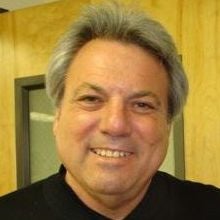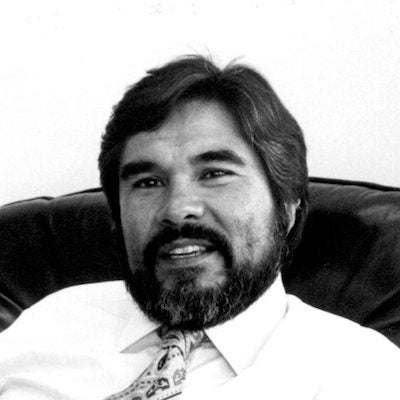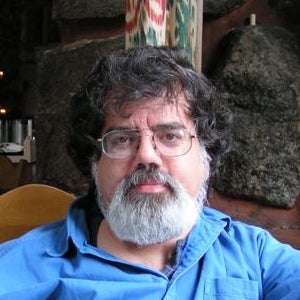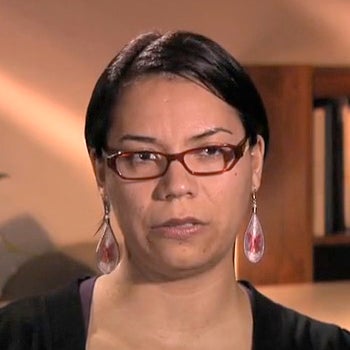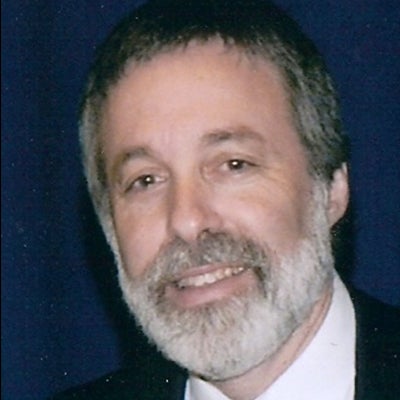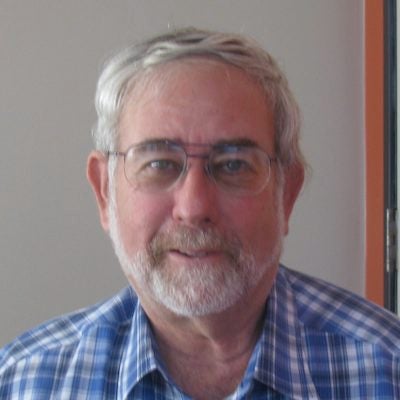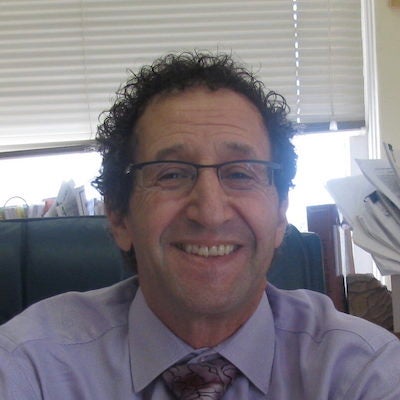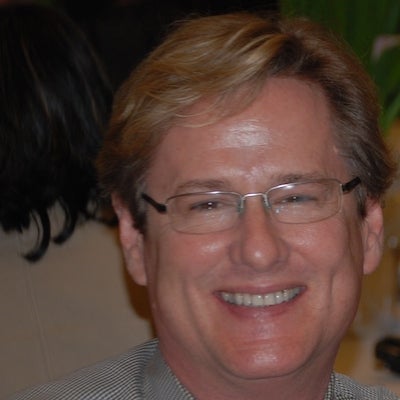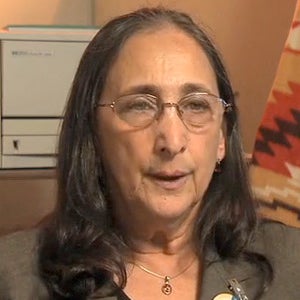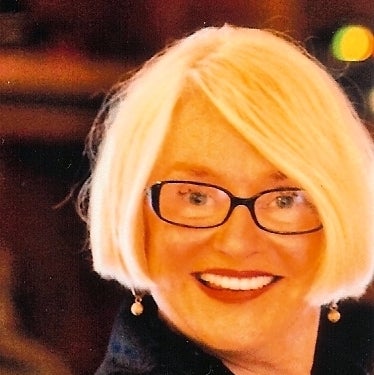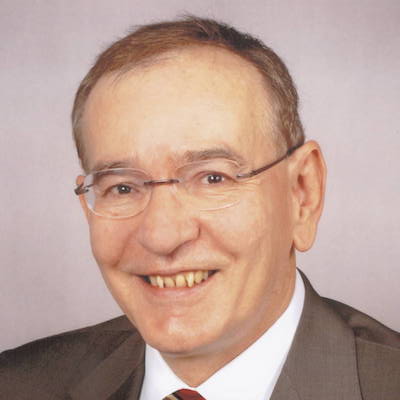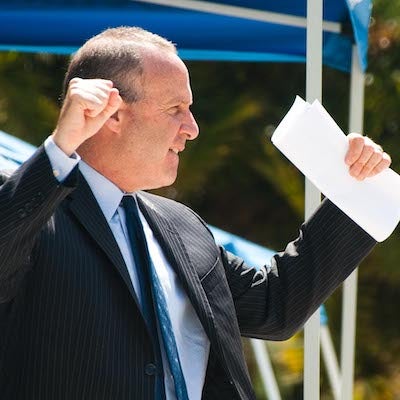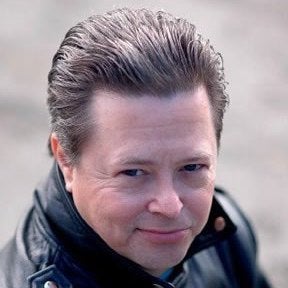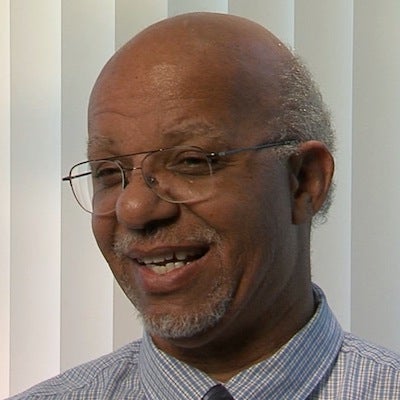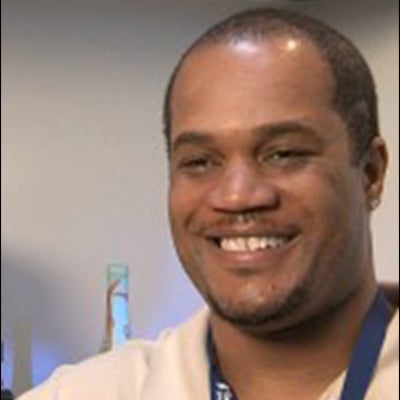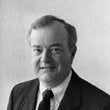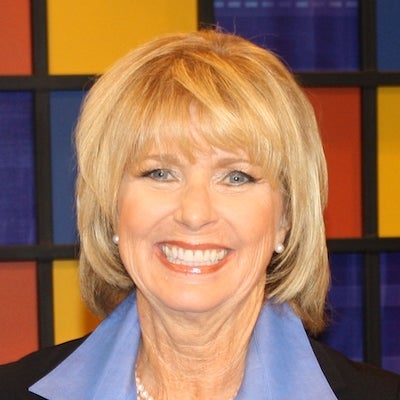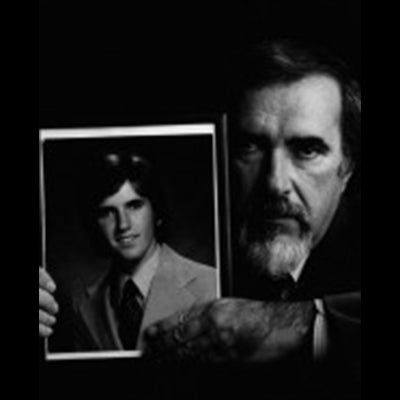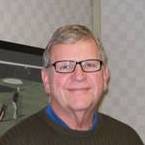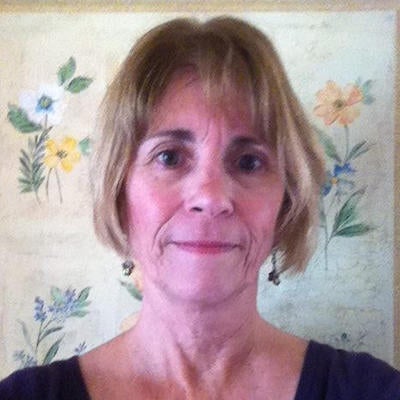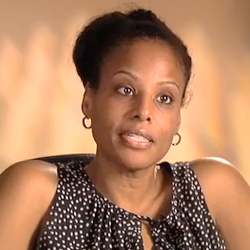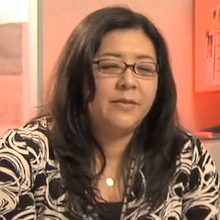Clients, families, social workers, advocates, psychologists, psychiatrists, and DMH staff are all part of the fabric of the story of mental health in California and in LA County and how it has been transformed over the years. Each person brings a unique life story and perspective, but all are committed to making life better for those who suffer from mental illness. Here are some of their personal stories.
Alfredo Aquirre, MSW, is the Director of Behavioral Health Services for San Diego County. He received his Master’s Degree in Social Welfare in 1978 from UC Berkeley and was Director of the Children’s System of Care for Mental Health in San Mateo County, before becoming Assistant Director for Children’s Mental Health in San Diego in 1999. He combined this position with that of Acting Assistant Director for Adult/Older Adult Mental Health for a number of years, during which he led the MHSA transformation of services in the County. He became Director of Mental Health in 2007 and assumed his current position in 2012.
He has a special interest in cultural competency development and has worked to increase capacity to serve individuals with co-occurring disorders, to reduce disparities for ethnic communities in seeking care, and to establish primary care based mental health services.
Mr. Aguirre also serves on the Board of Directors of the National Network of Social Work Managers, is a member of the California Mental Health Director Association and the organization’s Co-Chair of the Ethnic Services Committee, and is a member of SAMHSA’s Child, Adolescent and Family Branch Council on Collaboration and Coordination.
Laurel Ann Bogen is the author of ten books of poetry and short fiction including Washing a Language; Fission; The Last Girl in the Land of the Butterflies; The Burning; Do Iguanas Dance Under the Moonlight? and Rag Tag We Kiss. From 1996 until 2002 she was literary curator at the Los Angeles County Museum of Art, where she coordinated the Writers in Focus poetry series and co-authored a grant sponsored by Poets and Writers, linking the museum’s education department with Beyond Baroque Literary/Arts Center to create a writers-in-residence program. She has been an instructor of poetry and performance for the UCLA Extension Writers’ Program since 1990 and is well known for her lively readings. She is also a client at Edelman Mental Health Center in West LA.
Catherine Bond, MFT, was one of the leading consumer advocates in California. She worked as a therapist and an English instructor, and also spent time teaching in South Korea and Thailand, before becoming involved in peer support and training. Among her many accomplishments in the mental health field, she served as the Training Coordinator for the Project Return Peer Support Network and as a Training Director for Mental Health America of Los Angeles. In addition, she worked extensively with the California Network of Mental Health Clients. She is currently the Vice-Chair of the Los Angeles County Client Coalition, and she served as a strategic planning consultant for the Los Angeles County Department of Mental Health. Ms. Bond died in 2017.
Dr. Harry Brickman was the founding Director of the Los Angeles County Department of Mental Health in 1960 and served in that position until 1976. He received his medical degree from NYU, interned at the Menninger Clinic, and completed his residency in psychiatry at UCSF. For the next few years, he gained a variety of experiences, setting up a new Mental Health Clinic in Riverside, completing a tour of duty as a Naval psychiatrist in San Diego, and worked as medical director of a youth correctional facility in Norwalk. In 1957, he joined the faculty of the UCLA Department of Psychiatry. As the first Director of LAC-DMH, he increased the provision of mental health services throughout the County, with an emphasis on consultative services, and established the Education and Research Division to build a knowledge base for future planning. After leaving LAC-DMH, Dr. Brickman pursued teaching and practice as a member of the UCLA Department of Psychiatry and Biobehavioral Sciences until his death in 2018.
Catherine Camp is the former Executive Director of the California Mental Health Directors Association (CMHDA), serving the organization from its founding in 1989 through 2000. During her time with CMHDA, she worked on the restructuring of the way public mental health services in California were funded. She was also one of California’s leading advocates for the public mental health system. After leaving the CMHDA, she served as a consultant to the California State Budget Committee in 2001 and 2002.
Judy Cooperberg is Executive Director of Mental Health America Antelope Valley Enrichment Services in Lancaster, California. She became an MHA volunteer in 1981, when in recovery from depression, and was hired the following year as MHA Regional Director for the San Fernando Valley. In 1989, she became aware of the need for mental health services in the Antelope Valley and opened up a small program with one and a half staff, and herself half-time. Today, she runs a $4.7 million dollar program that provides intensive case management for those with mental health needs, as well as a drop-in center and assistance facility for the homeless. She is a published poet and is known nationally for her work and advocacy for people affected by mental illness.
Susan Crimin is the Supervising Psychiatric Social Worker at Palmdale Mental Health Center in the Antelope Valley.
Dr. Areta Crowell was Director of the Los Angeles County Department of Mental Health 1991-1998. She was born and raised in Canada and earned her Ph.D. in psychology at McGill University. After a few years teaching in New Jersey, she chose to go into mental health services research after moving to Los Angeles and joined LAC-DMH 1965. She took on many different responsibilities at DMH over the next 20 years, in research, planning, and administration, including serving as Regional Director in the San Fernando and San Gabriel Valleys. In 1986, she accepted the Directorship of Mental Health for San Diego County. She returned to LAC-DMH as Director in 1990, and was noted for her strong administrative and negotiation skills and for her promotion of consumer and family interests and involvement. Since her retirement in 1998, she has remained active on many mental health boards and on the Healthy Families advisory panel.
A Phi Beta Kappa, summa cum laude honors graduate of Ohio State University, Barbara Demming Lurie continued her graduate studies in clinical psychology at the University of Wisconsin. She spent the next two decades heading the Patients’ Rights Bureau for LAC-DMH on weekdays and on weekends, penning a restaurant review column for a daily Los Angeles newspaper. Her work, while at the Department, to help craft and pass legislation protecting rights of mental health clients and other efforts on their behalf earned her “Lifetime Achievement” and “Advocate of the Century” Awards from the California Association of Mental Health Patients’ Rights Advocates (CAMHPRA) and a picture in Newsweek Magazine. After she left the Department, she became Director of Programs and Research for the Entertainment Industries Council, Inc. She was then asked to head the Mental Health Media Partnership, a nonprofit organization sponsored by USC and the University of Pennsylvania, to work with the entertainment industry, promoting understanding of mental health issues. Besides her current position as a consultant working on issues related to mental health and the media, she is Assistant Director of the Integrated Behavioral Health Project (IBHP), an initiative of the California Endowment and the Tides Center.
Wendy Douglas, LCSW, is a social worker at Edelman Mental Health Center in West Los Angeles.
Dr. J. R. Elpers was Director of the Los Angeles County Department of Mental Health 1978-84. He received his medical degree from Indiana University and completed his residency in psychiatry at Columbia-Presbyterian in New York. After working as Deputy Director of Mental Health in Orange County, he was appointed Director of the Los Angeles County Department of Mental Health in 1978, just as the Department was “de-merged” from Health Services. During his tenure, Dr. Elpers laid the foundations for the organizational structure of today’s DMH, oversaw the initial development of Project Return, and participated in the development of the California Model plan for mental health. After leaving LAC-DMH, Dr. Elpers set up an Integrated Service Agency model program at Harbor-UCLA, called “AMI-Able,” with NAMI support. He also served on the boards of Mental Health America and the California Institute for Mental Health.
Dolores Encinas grew up in Missouri, later moving to Iowa and then to Los Angeles. She became involved with the National Alliance on Mental Illness (NAMI) when her sons became ill. Ms. Encinas helped organize NAMI East San Gabriel Valley, and she served as President of the group. During this time, she developed educational panels that presented for mental health conferences, colleges, law enforcement agencies, and clinicians. Ms. Encinas also sat on the Boards of Directors of NAMI California and NAMI National, and she spent many years on the Board of Pacific Clinics.
Erin Gilbert-Gorham is a community worker at Arcadia Mental Health and Wellness Centers. She works from lived experience to counsel and support clients with co-occurring disorders.
Gene Gray is a Licensed Family Therapist at the LACDMH Antelope Valley Mental Health Center in Lancaster, California.
Carol S. Hood earned her Bachelor’s degree at the University of California and her Master’s degree from the University of Minnesota, before joining the California State Department of Mental Health’s Systems of Care Division in 1988. She managed the State’s effort to shift Medicaid mental health services to a managed care system in the 1990’s, served as Assistant Deputy Director for the California Department of Mental Health Systems of Care from 1998 through 2000, and was promoted to Deputy Director of the Department of Mental Health in 2001. She also played a critical role overseeing the implementation of the Mental Health Services Act, which was approved by California voters in November, 2004.
Dr. Ian Hunter graduated from Occidental College with a Psychology major and earned his PhD in Clinical Psychology at the University of Oregon in 1966. He held a postdoctoral fellowship at the Langley Porter Neuropsychiatric Hospital and at the Mt. Zion Psychiatric Hospital in San Francisco and also completed a clinical internship at the Suicide Prevention Center in Los Angeles. After teaching at UCLA for a few years, in 1969 he became a staff psychologist at the Student Health Center at Cal Tech. In 197, he was named Administrator of the center, and developed an Encounter Group program there which helped drastically reduce student suicide rates. Dr. Hunter joined the LA Department of Mental Health in 1975, as a senior psychologist and Assistant Director of the San Gabriel Valley Region. When a new Mental Health Center was built in La Puente in 1979, he was appointed as the Director and subsequently became District Chief. In 1981, Dr. Hunter accepted the position of Executive Director of the San Fernando Valley Community Mental Health Center, the job he still held at the time of the interview in 2009. As a core member of the California Council of Community Mental Health Agency, Dr. Hunter contributed to the development of the Mental Health Services Act. He is also a member of the Association of Community Human Service Agencies.
Carla Jacobs is a veteran mental health activist who has helped shaped the dialogue surrounding mental health public policies in California. Motivated by family tragedies involving relatives suffering from schizophrenia, Ms. Jacobs began a personal crusade to change the treatment laws for people with severe mental illness. She is guided by a basic principle that access to treatment for mental disorders is a human right as well as an obligation of and a benefit to the society that provides it. With support from the National Alliance for the Mentally (NAMI), Ms. Jacobs has successfully directed advocacy and legislation campaigns to reduce homelessness and the criminalization of people with mental illness by improving standards and practices in community care. She has served two terms of office as a board member of NAMI-California, followed by two terms as an elected board member of the NAMI National Board of Directors. She has also served as Mental Health Commissioner for the County of Los Angeles, as a Governors’ appointee to the Board of Directors of Protection and Advocacy Inc., and as a member of the Los Angeles County Board of Supervisor’s Task Force on the Incarcerated Mentally Ill, which was created to give that board recommendations regarding the LA County Jail System. Ms. Jacobs was also a member of the Lanterman-Petris-Short Act (LPS) Reform Task Force, a joint effort of NAMI-Los Angeles County and the Southern California Psychiatric Society. She is on the Board of Directors of the Treatment Advocacy Center, a national nonprofit organization founded by E. Fuller Torrey in 1998 to eliminate barriers to the timely and effective treatment of severe mental illnesses.
Makesha Jones-Chambers, Psy.D., is Program Head of the LACDMH Antelope Valley Mental Health Center in Lancaster.
Rose King is a Sacramento-based political and policy consultant, and a family member of several individuals with serious mental illness. After entering politics in 1968 by joining a campaign to recall Governor Ronald Reagan, King has worked for some of California’s most prominent politicians, including Bill Lockyer, Leo McCarthy, and Nancy Pelosi. As McCarthy’s Chief of Staff when he was Lieutenant Governor, King helped initiate the Task Force on Serious Mental Illness, whose findings led to the creation of Integrated Service Agencies throughout California in 1989. She was also the co-author of 2004’s Proposition 63, the Mental Health Services Act. King continued to advocate for individuals with mental illness and the improvement of the mental health system in California until her death in 2021.
Eddie Lamon grew up in Oklahoma and Northern California. She became active in school and community affairs as a young mother living in South Central Los Angeles in the 1950s. When she realized the need for mental health services in the community, she became a vocal and determined advocate, serving first on the Regional Citizen’s Liaison Committee and on many subsequent Advisory Boards and Committees. Her advocacy has been recognized by many awards and continues to the present day.
Martha Long, C.P.R.P., helped revolutionize the public mental health system in Los Angeles County with her work as the first Director of the Village in Long Beach. After beginning her career as a teacher, Long began working in mental health at The Social Center’s clubhouse program in Fairfax County, Virginia. She moved to California to direct the Integrated Service Agency at the Village in 1990. Under her leadership, the Village grew from an experimental pilot program into a national model, which has been recognized and emulated throughout the state and the country. In addition to her work at the Village, Long has worked as a consultant in several states, and she has also been involved in the Mental Health Services Act stakeholder process in Los Angeles County. Among her many honors, Long has received the International Association of Psychiatric Social Rehabilitation Services’ lifetime achievement award in recognition of her contributions to the field.
Charlotte Lujan is a social worker of Native American heritage at the American Indian Counseling Center in Cerritos, CA.
Gaines Lyons was born in Little Rock and grew up in Cleveland. He served in the Navy for four years, studying Chinese-Mandarin and spending time in Japan and the Philippines. After returning to the U.S., he graduated from the University of California Berkeley with a degree in Japanese Language and Literature. He later worked for Project Return Peer Support Network as a mental health advocate, campaigning for the passage of the Mental Health Services Act, and he served as editor of Peer Support News for ten years. Mr. Lyons currently sits on the Mental Health America Village Board of Advisers.
Susan Mandel earned her doctorate in psychology from the University of Cincinnati in 1968. She worked as a staff psychologist at Alameda County Hospital prior to becoming Director of Mental Health for the County in 1975. In 1980, she became CEO of Pasadena Child Guidance Clinics, which became Pacific Clinics in 1987, and oversaw its growth from a small non-profit with a budget under $1 million to a large, multi-cultural network of clinics with a budget of nearly $100 million. In 2007, Pacific Clinics merged with Portals. Mandel has been active on the State Mental Health Planning Council and on the California Council of Community Mental Health Agencies
Mrs. Stella March was an early founder and organizer of NAMI in California. She graduated from Hunter College, worked with the Red Cross in the Pacific in World War II, organizing shows for the troops, and as an advertising and radio copywriter in New York, Miami, and Los Angeles. Her son’s illness sparked her involvement in NAMI and she has been an advocate for increased research funding and better housing for the mentally ill since 1979, working on both the national and local level. She is especially noted for her work in StigmaBusters, reducing stigmatizing images of the mentally ill in the popular media, and in NAMI educational programs, such as In Our Own Voice.
Roy Marshall is President and CEO of the San Fernando Valley Child and Family Guidance Center, a multisite mental health center which provides services to vulnerable and at-risk children and their families in the San Fernando and Antelope Valleys. Mr. Marshall grew up in Encino; his parents were members of the group that founded the SFV Child Guidance Center in 1962. He first started working at LAC-DMH in 1972 and received his Master’s of Public Administration from USC in 1975. After several years working for the National Association of State Mental Health Program Directors, he became Executive Director of the Rappahannock Area Community Services Board in Fredericksburg, Virginia in 1979. Mr. Marshall returned to California in 1993 and served as Director of the Henrietta Weill Memorial Child Guidance Clinic in Bakersfield and at the Los Angeles Child Guidance Clinic before accepting his present position in 1990. He is a past president of both the California Council of Community Mental Health Agencies and the Association of Community Human Service Agencies.
Stephen Mayberg, PhD, retired as Director of the California Department of Mental Health in December 2010, after serving in this capacity for more than 17 years. During his tenure, he embarked on an ambitious agenda that included major initiatives to reform the mental health system. These reforms reflected changes based on programmatic research, and program outcomes and accountability. Of greatest significance was his work on system change and services integration; Dr. Mayberg has always advocated for better access, the reduction of stigma and discrimination, and for the development of programs that meet the unique needs of disparate populations. During his public service career, he was a consistent advocate for the importance of interagency programming and planning at the both the state and local levels. Dr. Mayberg received his undergraduate degree from Yale University and his doctorate in clinical psychology from the University of Minnesota. He completed his internship at the University of California Davis and worked in clinical, program coordination, and managerial positions in the California Mental Health System until his retirement, serving, among other positions, as Director of Mental Health for Yolo County. Dr. Mayberg was appointed to the President’s New Freedom Commission on Mental Health in June 2002. In addition, he has served on many Boards, Commissions and Task Forces related to mental health issues. Dr. Mayberg has been recognized and honored numerous times at the state and national levels for his work in the mental health field. Most important to Dr. Mayberg is his work as a clinician, placing primary focus on the needs of the individuals and families being served. Throughout his entire public service career, he continued to make time to provide direct clinical services and is still active as a clinician in his retirement.
Carl C. McCraven trained as an engineer at Howard University and was working in the aerospace industry in Los Angeles when he became Chairman of the Board of the new Pacoima Memorial Hospital. The Community Mental Health Center was founded as part of the Hospital in 1966. He earned a master’s degree in Health Sciences Administration and became an Associate Administrator of the Hospital. In 1973, he became Executive Director of the Mental Health Center. Eva S. McCraven was trained in Health Science and Psychology and became director of Health Education at the Pacoima Memorial Hospital. When the hospital was forced to close in 1984, the McCravens salvaged the Community Mental Health Program and have continued to operate the Hillview Mental Health Center in their ethnically diverse low-income community. They were particularly active in developing housing sites and programs for mentally ill offenders and for transitional age youth. Eva became CEO in 2004 and Carl continued to serve as CFO until his death in 2012.
Keris Jän Myrick earned a Master in Business Administration at Case Western Reserve University, a Master in Divinity at Fuller Theological Seminary, and a Master of Science in Organizational Psychology. She is currently completing her Ph.D. in Industrial-Organizational Psychology. After working as a college admissions counselor for many years, she became involved with NAMI, sitting on the board of NAMI San Gabriel Valley and, currently, NAMI National. She also trains and presents with the NAMI educational program “In Our Own Voice.” Among her many additional accomplishments, Ms. Myrick worked with Recovery Innovations in California, helping the peer empowerment organization expand in Ventura County, and she has been a consultant to the California Institute of Mental Health. She has served as Executive Director of Project Return Peer Support Network since 2009.
Andrew Posner learned about mental illness through his own struggles, moved himself out of a board-and-care home to live in the community, and worked at a series of jobs to pay for his own treatment. He became Executive Director of BACUP, Benefits Assistance Clients Urban Projects in 1986. This self-help group assists mental health clients to qualify for benefits, but also offers social and educational activities.
Roberto Quiroz was Director of the Los Angeles County Department of Mental Health 1984-91. He earned his MSW from Columbia University and worked in New York in family therapy and at the NASW headquarters. In 1972, he was appointed assistant director of a new community mental health center in Pueblo, Colorado, and subsequently served as the center’s executive director for 5 years. He came to Los Angeles County in 1979 to join J.R. Elpers’ team as Regional Director of Mental Health for the San Fernando/Antelope Valley Region. After Dr. Elpers’ resignation, Mr. Quiroz became interim Director and then Director of LAC-DMH during several difficult years characterized by many funding issues. After resigning as Director, he became Executive Director of the Mental Health Corporation of Denver. Since retiring in 2000, he has returned to LA and served on several public service boards, including the California Board of Behavioral Sciences (BBS) and the National Latino Behavioral Health Association (NLBHA).
Mark Ragins grew up in Southern California. He graduated from the California Institute of Technology and received his MD from Washington University in St. Louis. After completing his residency in psychiatry at LA County-USC Hospital, he worked for several years in LAC-DMH public mental health clinics and at UCLA-Harbor General Hospital. In 1990, he became staff psychiatrist and one of the founding members of the Village, Mental Health America-LA’s demonstration Integrated Service Agency program under AB3777 (the Wright-Bronzan-McCorquodale Act of 1988). Here Dr. Ragins developed his philosophy and methods of recovery-oriented treatment, which has made him one of the leaders of the Recovery Movement, not only in Los Angeles County, but nationally and internationally. He has lectured and consulted widely and his book, Road to Recovery, and many of his other writings are available on the MHA-LA website (www.mhala.org). Dr. Ragins was the co-recipient of the American Psychiatric Association’s van Ameringen Award in 1995 for his outstanding contributions to the field of psychiatric rehabilitation and was named a Distinguished APA Fellow in 2006.
Yadira Ramirez-Flores is one of the Spanish-speaking psychiatric social workers at Edelman Mental Health Center.
Bruce Saltzer received his law degree from USC and an MBA from the Claremont Graduate School. He began his career in Legal Aid and worked as an advocate for the developmentally disabled. In 1991, he was appointed Executive Director of the Association of Community Mental Health Agencies, and continued in this position when the organization was merged with the Association of Human Services Agencies. He played a major role in writing and working for the passage of the Mental Health Services Act, as well as earlier significant mental health legislation.
Ron Schraiber is a longtime consumer activist leader in California. He had his initial encounter with the mental health system as a graduate student at UC Irvine, followed by experiences in several different cities. He began reading Thomas Szasz’ work, which appealed to him, and founded a client group which he named CAPABLE – Citizens Against Psychiatric Abuse and Bureaucratic Legal Entanglements. Later he worked as a client advocate in Contra Costa County. In 1983, he participated in the founding of the California Network of Mental Health Clients, and in 1986, co-wrote (with psychologist Jean Campbell) the research proposal for The Well-Being Project, a major survey of client needs conducted by the Network under contract from the State Department of Mental Health, and co-directed the Project through the publication of the final report, In Pursuit of Wellness, in 1989. Schraiber moved to Southern California in 1986, where he worked as a consumer advocate at LAMP on LA’s Skid Row and at Metro State Hospital before joining the Los Angeles County Department of Mental Health as Director of Consumer Affairs in 1995. He was noted for his vigorous and articulate statements about mental health client rights at meetings and in public venues. As of 2010, he is Director of the Office of Policy and Research with DMH’s Empowerment and Advocacy Division.
Russell “Rusty” Selix, J.D., was one of the most important advocates for increased funding and innovation in the California mental health system in recent years. He attended Northwestern University and earned his law degree at the University of California at Davis, before becoming a policy advocate. After working as the deputy city attorney for the City of Sacramento, he became a lobbyist for the League of Cities, an experience which gave him intimate knowledge of the complex relationships between local and state governments. In the 1980s, he began working as an advocate for the mental health system, and served as the Executive Director of the California Council of Community Mental Health Agencies and Mental Health America of California. Among his many accomplishments in the mental health field, Selix played a key role in the creation of the AB 34 and AB 2034 programs, and he wrote 2004’s Proposition 63, which created the Mental Health Services Act. Selix died in 2019.
John Sheehe is the Co-Occurring Disorders System-wide Coordinator for LAC-DMH, part of the Office of the Medical Director. He earned his BA at San Francisco State and spent several years in the airline industry before returning to school to become certified as a Chemical Dependency Counselor and then to complete a Master’s in Social Work at UCLA, where he graduated in 1995. During his first assignments in this field, he began to realize the extent of the problem of dual diagnosis. In 1999, he became the COD Coordinator in Service Area 5, and assumed his present position in 2006. He was instrumental in beginning system-wide trainings in COD treatment for DMH clinicians.
Gloria Sheppard is Mental Health Clinical Program Head at the American Indian Counseling Center in Cerritos, California.
Victoria Sofro grew up in Northern California and attended USC School of Social Work, where she was certified in psychosocial rehab counseling. She had her first exposure to people with mental illness in her early twenties through taking care of a family member. She later worked as an art therapist for a group called the Friendship Club, now called Project Return Peer Support Network, that met at the YWCA, and then in the day treatment program at Verdugo Mental Health Center. She was elected to the Verdugo MHC Board and served as chairperson; this work brought her into contact with the LA County Department of Health Services (DHS) in the 1970s, when the Department of Mental Health (LAC-DMH) was part of DHS. Ms. Sofro was then appointed by Fifth District Supervisor Baxter Ward to the County Mental Health Commission, which played a crucial role in advocating for the separation of LAC-DMH from DHS. She was subsequently appointed by Ward’s successor, Michael Antonovich, and has continued to serve on the Commission to the time of the interview in 2010. During her long tenure as a Commissioner, she has been a leading advocate for improved Employment and Education Services and played an integral role in selecting LAC-DMH Directors Roberto Quiroz, Areta Crowell, and Dr. Marvin Southard. In addition, she helped to advocate for the passage of Proposition 63 in 2004 and the Mental Health Services Act. Ms. Sofro also belongs to the National Alliance on Mental Illness and its California chapter.
Marvin Southard earned his MSW at UC Berkeley and his DSW at UCLA. He served as Director of Clinical Services at El Centro Human Services Corporation in East LA for seven years and as Director of Mental Health in Kern County for five years, prior to being appointed Director of the Los Angeles County Department of Mental Health in 1998. As Director, he faced the challenges of implementing the Mental Health Services Act, overseeing a multi-participant planning process and the transformation of the County-operated clinics. Dr. Southard leads the largest public mental health system in the country, serving over 200,000 clients annually in one of the most ethnically diverse counties in the nation, with a budget of over $1 billion. Dr. Southard has been recognized for his dedication and leadership with the 2008 National Network for Social Work Managers Exemplar Award for outstanding achievement and the National Alliance on Mental Illness (NAMI) 2003 Award for Excellence in Community Mental Health Services, in recognition of ongoing efforts to building a comprehensive community care mental health system in Los Angeles County, among many other awards.
Darrell Steinberg has been the President pro Tempore of the California State Senate since 2008. Steinberg worked as an employee rights attorney for the California State Employees Association, an Administrative Law Judget, and a mediator before beginning his career in public service by serving on the Sacramento City Council from 1992 to 1998. Steinberg served in the California State Assembly from 1998 to 2004, and during his time there, became a champion for some of the most important mental health legislation in California’s history. His 1999 Assembly Bill 34 created new programs to serve homeless individuals with chronic and severe mental illness. In 2004, voters approved Steinberg’s Proposition 63 – the Mental Health Services Act – which now generates over $1 billiion per year in state and federal funds for community-based mental health programs.
Brook Sylvann, a theater, film and television actor and comedy host, leads the Improv Comedy Group at Edelman Mental Health Center.
Harry Taylor, PhD, is the Clinical Program Head at Palmdale Mental Health Center in the Antelope Valley.
Sandra Thomas earned her Masters in Social Work from UCLA in 1977 and began her professional career at MacLaren Children’s Center in 1978, where she set up the first play therapy program. Her interest and focus on children and families continued through increasingly responsibsle positions Compton Mental Health Center in South LA, as Child Abuse Services Coordinator at LACDMH headquarters and as Supervising PSW at Hobart Manor, a residential program affiliated with Augustus Hawkins Comprehensive Mental Health Center. Ms. Thomas returned to Compton as Program Head in 1991 and served in that role until 1999, when she was appointed District Chief of Children’s programs in SA 6. In 2004, she became head of the new DMH Child Welfare Division and developed the Countywide Specialized Mental Health Services Program under the County’s Katie A. settlement agreement. In 2007, she was named Deputy Director (having served as Acting Deputy Director since 2006), of the new Specialized Children and Youth Services Bureau, encompassing both Child Welfare and Juvenile Justice Programs, and also took on full oversight of SA 6.
Dion Tillman is a certified substance abuse counselor at LACDMH Palmdale Mental Health Center.
The Rev. Richard Van Horn was Chief Executive Officer of Mental Health America in Los Angeles from 1980 through 2009. (From 1980 through 2006, the organization name was the Mental Health Association). He graduated from Harvard in 1961 and earned a Master in Divinity from the General Theological Seminary of New York in 1965. Ordained as an Episcopal priest and assigned to the Diocese of Los Angeles, he took an extended leave from the Church in 1980 to pursue his work with MHA. He became an active force in Mental Health Services in Los Angeles, presiding over the creation of the Village, the first Integrated Service Agency, and playing an important role in the passage of the Mental Health Services Act of 2005 (Prop 63). Although Van Horn stepped down from his post as CEO of MHA in 2010, he continued to serve on the MHSA Oversight and Accountability Commission and on other important boards and task forces through much of the decade. He died in 2021.
Cathy Warner was named Deputy Director of the Adult System of Care for the Los Angeles County Department of Mental Health (LACDMH) in 2008. Ms. Warner earned her Masters’ in Social Work from San Diego State and undertook diverse responsibilities during her career at DMH, running programs for adults with HIV and serving as the Program Head at Rio Hondo, Long Beach, and South Bay Mental Health Centers, as Deputy Director for Older Adult Systems of Care, and from 2006, as Clinical District Chief for Service Area 8. As Deputy Director for ASOC, she has played a key role in completing the MHSA transformation of the directly-operated clinics.
Dan E. Weisburd is a distinguished writer, producer, director, story editor, publisher, and corporate executive who has worked for over 50 years in the motion picture, television, and educational media industries. In 1980, Dan’s eldest son David was diagnosed with schizophrenia while attending Harvard University. Frustrated by the difficulty of getting quality care for David, Weisburd became one of the California mental health community’s most vocal advocates. He has served as the president of the California Alliance for the Mentally Ill (CAMI), published CAMI’s main publication, The Journal, and created programs to train law enforcement on how to work with individuals suffering from mental health problems. Weisburd served as Chairman for Lieutenant Governor Leo McCarthy’s Task Force for the Seriously Mentally Ill, which led to the passage of AB 3777 and the creation of Integrated Service Agencies in California.
Jerry Wengerd first worked in a psychiatric hospital as a conscientious objector and found his true calling there. He earned his master’s degree summa cum laude from California State University Fresno in 1975. Wengerd served as Director of Mental Health in Mariposa County (1980-88) and in Fresno County (1988-2005), where he was also Director of children’s behavioral health services. He came to Riverside County in 2005, and has worked to implement a recovery-oriented focus under MHSA and to improve housing options.
Suzane Wilbur received her master’s degree in nursing in 1983 and led mental health crisis units at Metropolitan State Hospital, at the Skid Row Mental Health Center (now Downtown Mental Health Center), and at Harbor-UCLA Medical Center. In 1991, she worked with Dr. J.R. Elpers and the South Bay Chapter of NAMI to set up the AMI-ABLE Program, an ISA model program that she ran until 2000. Subsequently, she developed the DMH Indigent Medications Program, the Urgent Care Center at Augustus Hawkins, and the DMH Psychiatric Mental Health Nurse Practitioner Program. She retired from County service in 2010 but continues to work part-time as a Clinical Psychiatric Nurse-Specialist.
Stacy Williams is a nurse with a Master’s in Health Administration. She finished her graduate degree just as the DMH clinics were beginning to transform under MHSA, which she saw as an exciting opportunity. After serving as head of Crisis Resolution at Downtown Mental Health Center, and later of the Wellness and CalWORKS programs there, she moved to the Department of Health Services in 2012.
Lisa Wong originally planned to become a physician but became fascinated by psychology in medical school and instead chose a career in social work. During twenty-three years at Downtown Mental Health Center, she saw many change in the Skid Row area. At the time of the interview, she was Clinical Program Head for the Wellness, CalWorks, and PEI programs; in 2012, she became LACDMH District Chief in Service Area 2.
